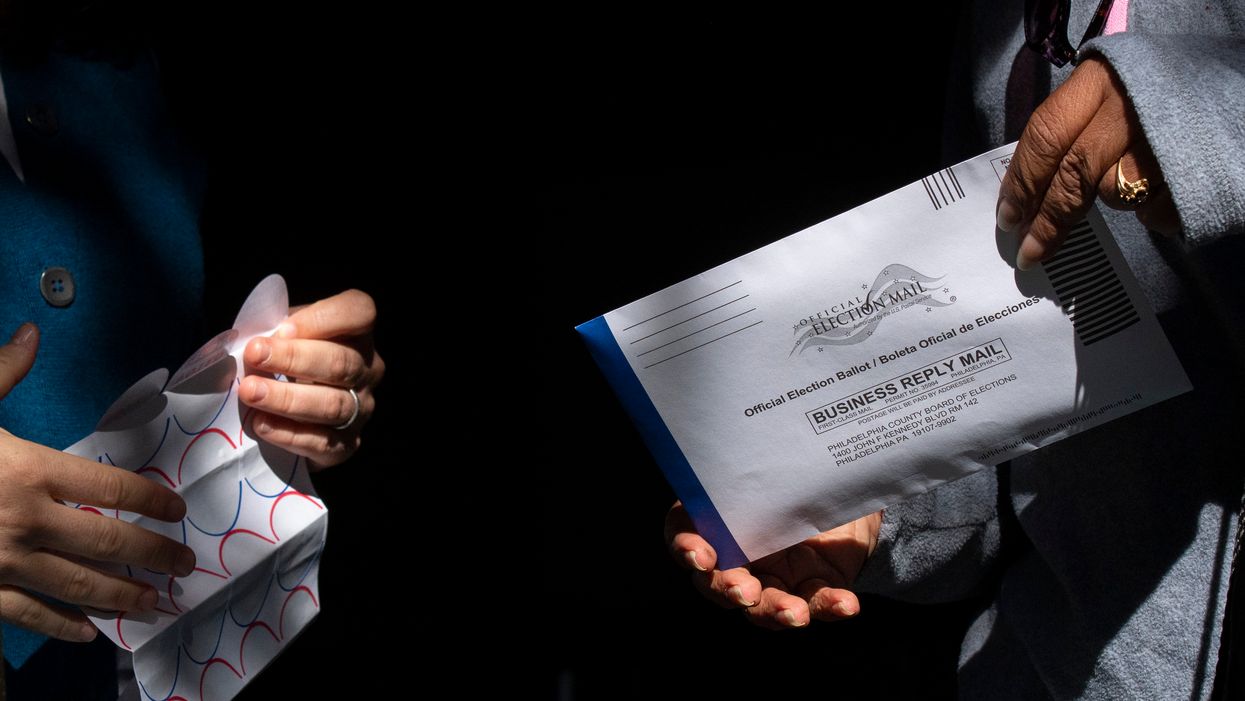Republicans signaled Tuesday they are not giving up their effort to shut down the vote count on Election Day in Pennsylvania, hours after the Supreme Court delivered a significant win to Democrats by permitting absentee ballots in the pivotal battleground to arrive later.
Word from GOP leaders in the state magnified the realities that legal fighting over almost every aspect of the presidential race is far from over — and that Judge Amy Coney Barrett could play a deciding role in this year's essential democratic exercise as soon as she arrives on the high court, probably next week.
For the time being, though, the situation in Pennsylvania, with 20 electoral votes crucial to both candidates, is something of a good news, bad news situation for an already confused electorate.
On the one hand, voters who wait until the last minute to cast their absentee ballots are less likely to be disenfranchised because they get delayed by the mail. But on the other hand, the winner in the state, and perhaps the winner of the presidency, very likely won't be known until the weekend after the election — at the earliest.
That suspense will be compounded because none of the state's 2 million or more expected vote-by-mail envelopes will even be opened, and the signatures on them checked, until after the polls open Nov. 3. Negotiations in Harrisburg on a last-minute deal to allow that processing to start earlier essentially collapsed Monday.
What the Supreme Court decided later Monday night, because of a 4-4 deadlock, was to let stand a decision by the Pennsylvania Supreme Court. It had ruled that ballots arriving by Nov. 6, or three days late, should be counted so as not to punish voters for the consequences of the coronavirus pandemic and delays by the Postal Service — so long as they were postmarked by the time the polls closed or, if the postmark was missing or illegible, it could be proved the ballot went in the mail after Election Day.
The state court noted that Pennsylvania law allows mail ballots to be cast on Election Day, even though delivering them by the end of the day is impractical. Republicans say the court claimed authority that belongs to legislators.
Putting a halt on that ruling, called a stay, would have required five votes. The four most conservative justices justices would have done so: Clarence Thomas, Samuel Alito, Neil Gorsuch and Brett Kavanaugh. On the other side were Chief Justice John Roberts Jr. and the three liberal justices, Stephen Breyer, Sonia Sotomayor and Elena Kagan.
Neither side offered anything in writing, and the fact that it took two weeks for the decision in such an urgent case suggests that compromise had proved impossible.
But it also gave the Republicans a legal window to try again after all nine seats are occupied. Barrett is on course to secure Senate confirmation in the first half of next week, which is the week before the election. During her confirmation hearings she declined to say if she would recuse herself from presidential election cases, on the grounds she would be biased toward the candidate who put her on the court.
Top Pennsylvania GOP officials issued statements Tuesday signaling they were ready to press the issue.
Monday night's ruling "only underscores the importance of having a full Supreme Court as soon as possible," Chairman Lawrence Tabas said. "The Supreme Court decided not to grant a stay — which does not mean the actions of the Pennsylvania Supreme Court would withstand a legal challenge to their Judicial overreach should the court hear the case."
"We are still hopeful that a full court will reverse the Pennsylvania Supreme Court's intrusion, added the party's top attorney, Tom King.
Trump, meanwhile, derided the Supreme Court ruling as "ridiculous" on "Fox & Friends" Tuesday morning.
The decision sets aside one of the biggest legal hurdles still facing the election in Pennsylvania. The state Supreme Court is expected to decide in the coming days what rules, if any, should face election officials confronted with sloppy mail ballot signatures.
Democrats had requested 1.7 million absentee ballots in the state as of the end of last week, to just 672,000 for Republicans — one of the reasons the Joe Biden campaign is optimistic of carrying the state if all his supporters follow through. Trump carried the state by 44,000 votes, or less than 1 point, last time.
"In a year where there is a very real possibility that the final presidential election result hinges on Pennsylvania, the new rules imposed by the decision of the Supreme Court of Pennsylvania (a body elected in partisan elections) could destroy the American public's confidence in the electoral system as a whole," the state GOP and the party's legislative leaders said in their high court brief.
Pennsylvania and North Carolina are the two presidential tossup states where Republicans control the legislatures but Democrats hold most state Supreme Court seats.
The justices' decision was a big deviation from its record in election cases since the pandemic began. In all but one other case, the court has come down on the side of stricter rules for voting — mainly by applying a precedent against judges loosening procedures close to Election Day. It's first such ruling, hours before Wisconsin primary day in April, overturned a federal judge's decision lengthening the time for absentee voting. (The court did allow ballots to arrive late in that case, too, however.)




















Trump & Hegseth gave Mark Kelly a huge 2028 gift